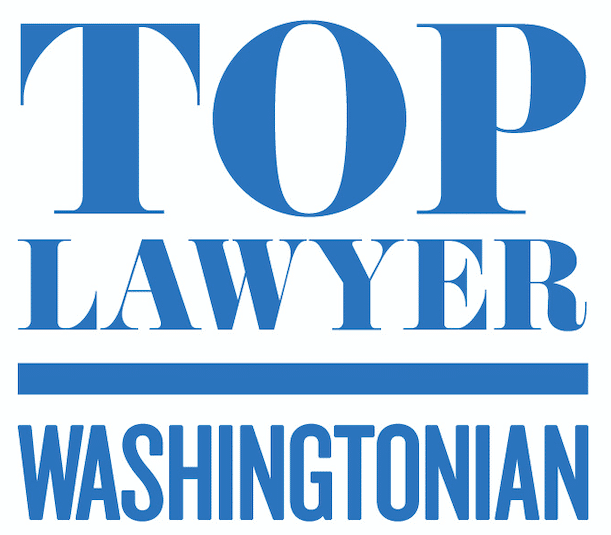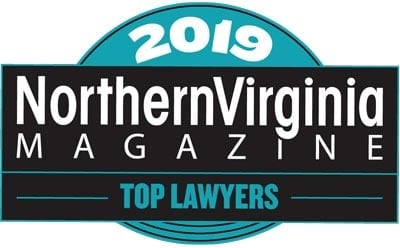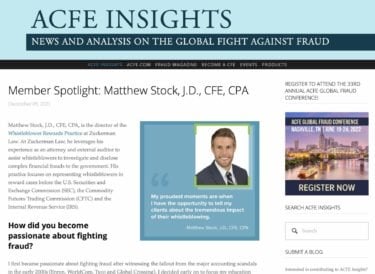
Investment Fraud Whistleblower Lawyers
The SEC protects investors against investment fraud, and it incentivizes whistleblowers to help expose such fraud and other violations of the federal securities laws. The Dodd-Frank Act, which was signed into law in 2010, entitles whistleblowers to receive a reward if their original information leads to a successful enforcement action with total monetary sanctions of more than $1 million.
Under the SEC Whistleblower Program, a whistleblower may receive an award of between 10% and 30% of the total monetary sanctions collected. If represented by counsel, a whistleblower may submit a tip anonymously to the SEC. The Dodd-Frank Act also protects SEC whistleblowers against retaliation.
Since 2012, the SEC Whistleblower Office has issued nearly $1.8 billion in awards to whistleblowers, including awards to our clients.
If you have information that may qualify for an SEC whistleblower award, contact the Director of our SEC whistleblower practice at [email protected] or call our leading SEC whistleblower lawyers at (202) 930-5901 or (202) 262-8959.
All inquiries are confidential. In conjunction with our courageous clients, we have helped the SEC halt multi-million dollar investment schemes, expose violations at large publicly traded companies, and return funds to defrauded investors.




Recently the Association of Certified Fraud Examiners published a profile of Matt Stock’s success working with whistleblowers to fight fraud:
SEC Targeting Investment Fraud
The SEC recently increased staffing in its investment adviser/investment company examination program by 20%, according to OCIE Director Marc Wyatt in a speech. Additionally, the SEC’s 2018 enforcement priorities, 2019 enforcement priorities, and 2020 enforcement priorities indicate the SEC will pay particular attention to:
- Disclosures of the costs of investing;
- Electronic investment advice;
- Wrap fee programs;
- Never-before-examined investment advisers;
- Senior investors and retirement accounts and products; and
- Mutual funds and exchange-traded funds (ETFs).
In addition, the SEC will continue to pay attention to other fraudulent offerings, such as Ponzi schemes and unregistered securities offerings.
Whistleblowers Are Critical to Enforcement of Anti-Fraud Laws
Despite the increased resources, whistleblowers remain a key source of information for the SEC. Many registered investment advisers are regulated solely by the SEC, and unlike registered broker-dealers, investment advisers have no self-regulatory organization. Further, more than 2,000 new investment advisers have registered with the SEC within the past two years.
Whistleblowers play a vital role in helping the SEC enforce laws when its resources are stretched thin. As SEC Chair Mary Jo White stated, “[Whistleblowers] provide an invaluable public service, and they should be supported…We have seen enough to know that whistleblowers increase our efficiency and conserve our scarce resources.”
Examples of Investment Company Act Violations
The SEC defines investment companies as any corporation, business trust, partnership, or limited liability company that issues securities and is primarily engaged in the business of investing in securities. The SEC may bring an enforcement action against an investment adviser for a host of violations, including:
- Failing to disclose fees, charges, and conflicts of interest;
- Failing to maintain adequate written policies and procedures;
- Parking;
- Steering;
- False or misleading advertising; and
- Failing to safeguard customer data.
In the past year, notable areas of fraud that have produced substantial settlements and penalties include:
Failing to Disclose Fees, Charges, or Conflicts of Interest
Section 206 of the Investment Adviser Act of 1940 (IAA) prohibits fraudulent and deceptive conduct, and Section 207 proscribes material misstatements in investment adviser registration applications or reports. The SEC relies on these statutory authorities to bring enforcement actions when investment advisers fail to disclose conflicts of interest, as well as client fees or charges.
For example, in December 2015, two JP Morgan wealth management subsidiaries agreed to pay $267 million to settle charges that they failed to disclose conflicts of interest to clients. According to the SEC order, the investment advisory business and the bank invested clients in the firm’s own proprietary investment products without properly disclosing this preference. In a parallel action, JP Morgan Chase Bank agreed to pay an additional $40 million penalty to the U.S. Commodity Futures Trading Commission (CFTC). (Note: the CFTC also has a whistleblower program that offers rewards for original information that leads to successful enforcement actions.)
In the SEC’s press release, the Director of the Enforcement Division, Andrew J. Ceresney, stressed the importance of adequate disclosure concerning conflicts of interest. He stated: “Firms have an obligation to communicate all conflicts so a client can fairly judge the investment advice they are receiving. These J.P. Morgan subsidiaries failed to disclose that they preferred to invest client money in firm-managed mutual funds and hedge funds, and clients were denied all the facts to determine why investment decisions were being made by their investment advisers.”
Other notable recent actions for failures to disclose conflicts, fees, or charges include:
- In October 2015, three private equity fund advisers within the Blackstone Group paid almost $39 million to resolve allegations they violated Section 206 for failing to disclose accelerated monitoring fees and a conflict of interest. Nearly $29 million was returned to investors;
- In November 2015, Fenway Partners LLP and four of its employees paid more than $10 million to settle charges that it violated Section 206 by failing to disclose a conflict of interest regarding the payment of fund and portfolio company assets to former employees and an affiliated entity.
- In September 2016, WL Ross & Co. LLC paid $2.3 million to resolve charges that it failed to disclose material information regarding fee allocation practices, in violation of Sections 206(2) and 206(4).
Misrepresenting Investments
Lying to investors about how funds will be invested violates several anti-fraud provisions of the federal securities laws. In January 2018, the SEC obtained approximately $8 million in disgorgement and penalties for a scheme in which an unregistered broker lied to prospective investors by stating that their funds would be invested in a low-risk, private off-shore trading program when in fact the investor funds were misused and misappropriated. This scheme raised $15.8 million from 26 investors in eight states and entailed sending investors false profit statements and otherwise deceiving investors.
Failing to Maintain Adequate Written Policies and Procedures
Rule 206(4)-7 requires investment advisers to maintain written and policies and procedures reasonably designed to prevent violations of the IAA. An investment adviser’s failure to do so violates Section 206(4). The SEC routinely enforces this provision in conjunction with other charges. Some of the cases above included charges that the investment advisers also violated Rule 206(4)-7. Other examples include:
- On August 23, 2016, four private equity fund advisers affiliated with Apollo Global Management agreed to a $52.7 million settlement to resolve a variety of charges, including that the advisers violated Section 206(4) and Rule 206(4)-7 by failing to maintain adequate policies and procedures.
- On September 14, 2016, First Reserve Management LP resolved allegations, including that it had violated Rule 206(4)-7, for $3.5 million.
Parking and Steering
Parking and steering schemes may constitute fraudulent practices in violation of Section 206. Parking is a practice of prearranged trading that benefits one account over another. Unlawful steering occurs when an investment adviser directs a client to investments that will generate higher fees for the adviser, without disclosing the conflict of interest to clients. Recent parking and steering cases include:
- In December 2015, Morgan Stanley Investment Management agreed to pay $8.8 million to resolve the SEC’s claim that a portfolio manager colluded with a brokerage firm trader to trade at prearranged prices to the benefit of some client accounts, but the detriment of others.
- In March 2016, three AIG affiliates paid more than $9.5 million to settle charges that they steered clients to investments that put unnecessary charges on the investor but generated an additional $2 million in fees without disclosing the conflict of interest.
False or Misleading Advertising
Section 206 of the IAA, and Rule 206(4)-1 in particular, also regulates investment advisers’ advertisements. The rule limits testimonials and recommendations and prohibits false and misleading advertising. Past examples of false or misleading advertising/misconduct that led to or arose from the financial crisis include:
- Concealing risks, terms, and improper pricing from investors in CDOs and other complex structured products;
- Making misleading disclosures to investors about mortgage-related risks and exposure; and
- Concealing the extent of risky mortgage-related and other investments in mutual funds and other financial products.
This misconduct resulted in over 200 entities and individuals being charged by the SEC. More recent examples of false or misleading advertising include:
- In December 2014, the SEC announced that investment management firm F-Squared Investments agreed to pay $35 million for defrauding investors through false performance advertising about its flagship product “AlphaSector.” According to the SEC’s order, virtually “all of F-Squared’s claimed outperformance relative to the S&P 500 Index…is attributable to its data compilation error.” AlphaSector became F-Squared’s largest ETF strategy on the market, with approximately $28.5 billion in assets following the strategy.
- In August 2016, the SEC charged thirteen investment advisory firms a total of $2.2 million for negligently relying on claims by F-Squared Investments that its AlphaSector strategy had outperformed the S&P Index for several years. The Director of the SEC Enforcement Division at that time, Andrew Ceresney, said: “When an investment adviser echoes another firm’s performance claims in its own advertisements, it must verify the information first rather than merely accept it as fact. These [thirteen] advisers negligently passed many of F-Squared’s claims onto their own clients, who were consequently relying upon false and misleading information when making investment decisions.”
- In May 2017, the SEC charged Bryant United Capital Funding, Inc. with inappropriately raising more than $22.7 million from 100 investors across the country by falsely promising investors a risk-free, guaranteed minimum 30% annual returns on the investments. In addition, the fraudster falsely told investors that their funds were placed in a safe escrow account to serve solely as proof of funds to secure a line of credit for the investments.
Failing to Safeguard Customer Data
Morgan Stanley Smith Barney LLC agreed to pay a $1 million penalty to settle charges for its failure to protect customer data. According to the SEC order, the firm did not adopt written policies and procedures reasonably designed to protect customer data. Some of the data was hacked and even offered for sale online.
According to PwC’s 2016 crime survey, economic crime has outpaced company preparedness and as a result, U.S. organizations have experienced an increase in cybercrime compared to prior years. This will continue to be a priority enforcement area for the SEC. Companies should ensure compliance with federal securities laws, which require investment companies to adopt written policies and procedures reasonably designed to protect customer records and information.
Negligent Conduct Violates the IAA and Scienter is Not Required
Unlike many other laws dealing with fraudulent conduct, the IAA may be violated when the investment adviser is merely negligent, as opposed to specifically intending to defraud a client. For example, because Section 206(2) prohibits conduct that operates as a fraud, an investment adviser may engage in prohibited conduct merely through negligence.
2024 SEC Examination Priorities for Enforcement of the IAA
The SEC’s 2024 Examination Priorities clarify that particular examination focus will include:
- Marketing practice assessments for whether advisers, including advisers to private
funds, have: (1) adopted and implemented reasonably designed written policies
and procedures to prevent violations of the Advisers Act and the rules thereunder
including reforms to the Marketing Rule; (2) appropriately disclosed their marketing-
related information on Form ADV; and (3) maintained substantiation of their
processes and other required books and records. Marketing practice reviews will
also assess whether disseminated advertisements include any untrue statements of a
material fact, are materially misleading, or are otherwise deceptive and, as applicable,
comply with the requirements for performance (including hypothetical and
predecessor performance), third-party ratings, and testimonials and endorsements. - Compensation arrangement assessments focusing on: (1) fiduciary obligations of
advisers to their clients, including registered investment companies, particularly
with respect to the advisers’ receipt of compensation for services or other material
payments made by clients and others; (2) alternative ways that advisers try to
maximize revenue, such as revenue earned on clients’ bank deposit sweep programs;
and (3) fee breakpoint calculation processes, particularly when fee billing systems are
not automated. - Valuation assessments regarding advisers’ recommendations to clients to invest
in illiquid or difficult to value assets, such as commercial real-estate or private
placements. - Safeguarding assessments for advisers’ controls to protect clients’ material non-public
information, particularly when multiple advisers share office locations, have
significant turnover of investment adviser representatives, or use expert networks. - Disclosure assessments to review the accuracy and completeness of regulatory filings,
including Form CRS, with a particular focus on inadequate or misleading disclosures
and registration eligibility
SEC Whistleblower Program
Under the SEC Whistleblower Program, whistleblowers may be eligible for monetary awards when they voluntarily provide the SEC with original information about violations of federal securities laws that leads the SEC to bring a successful enforcement action resulting in monetary sanctions exceeding $1 million.
The SEC Whistleblower Program also protects the confidentiality of whistleblowers and does not disclose information that might directly or indirectly reveal a whistleblower’s identity. Furthermore, the Dodd-Frank Act protects whistleblowers from retaliation by their employers for reporting violations of securities laws.
Whistleblowers may file a tip with the SEC anonymously if they are represented by an attorney.
SEC Whistleblower Process
For more information about the SEC Whistleblower Program, see our eBook Tips from SEC Whistleblower Attorneys to Maximize an SEC Whistleblower Award. Click below to hear SEC whistleblower lawyer Matt Stock’s tips for SEC whistleblowers:
Washington DC SEC Whistleblower Attorneys Representing SEC Whistleblowers Nationwide
For more information about whistleblower rewards and bounties, contact the SEC whistleblower lawyers at leading whistleblower firm Zuckerman Law at 202-262-8959.
- See our column in Forbes: One Billion Reasons Why The SEC Whistleblower-Reward Program Is Effective.
- See our column in Going Concern: Sarbanes-Oxley 15 Years Later: Accountants Need to Speak Up Now More Than Ever.
- See our post in Accounting Today: Whistleblower Protections and Incentives for Auditors and Accountants.
- See our post in The Compliance and Ethics Blog: Shkreli Trial Reveals the Challenges Faced by Compliance Whistleblowers.










